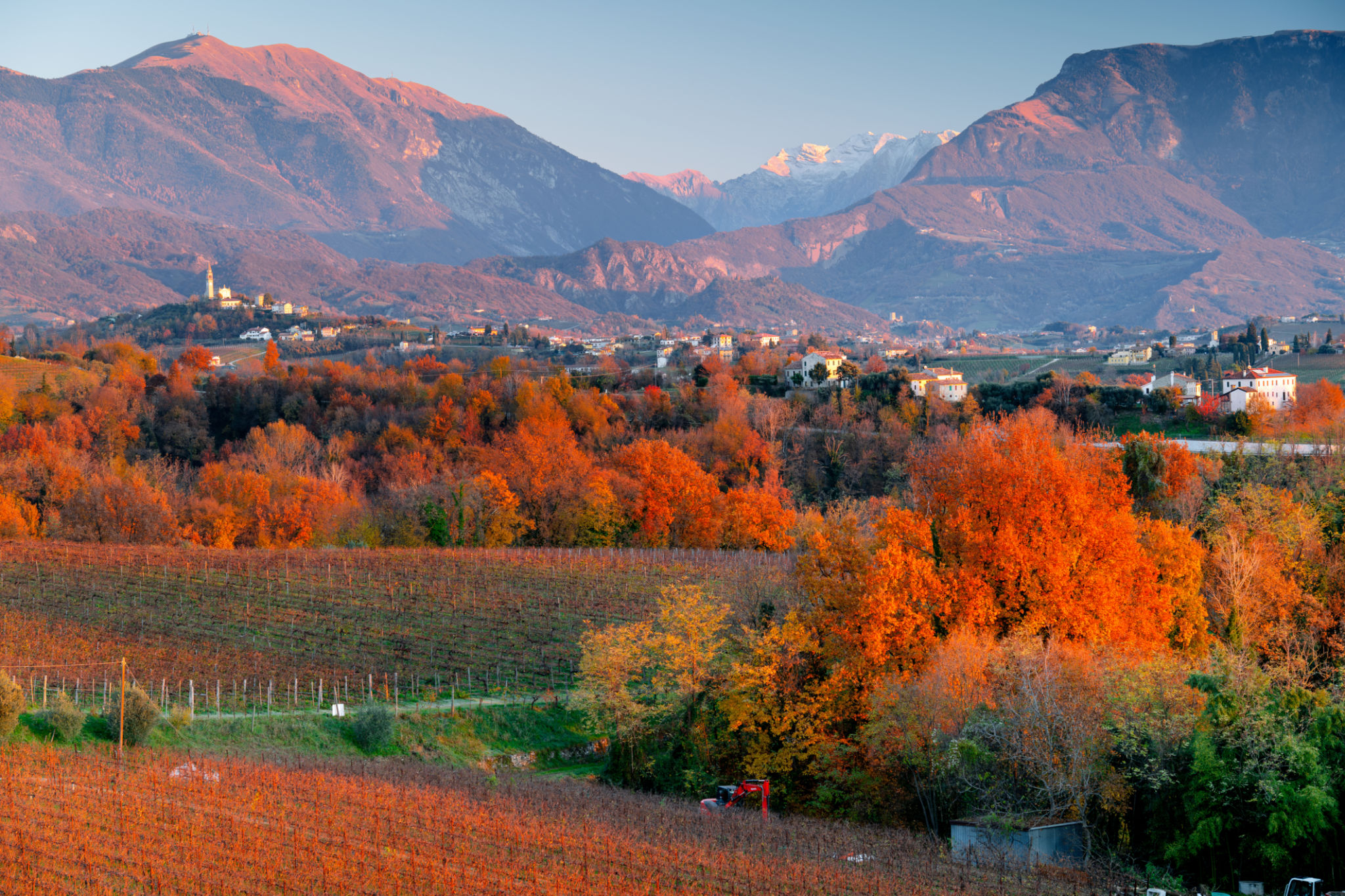From Vine to Glass: The Journey of Prosecco in Treviso's Vineyards
Nestled in the northeastern part of Italy, the Treviso region is renowned for its production of the sparkling wine known as Prosecco. With its rolling hills and fertile land, Treviso offers the perfect conditions for cultivating the Glera grape, the primary grape variety used in Prosecco production. This blog post takes you on a journey from vine to glass, revealing the intricate process behind this beloved bubbly.

The Birth of Prosecco: Vineyards of Treviso
The journey begins in the lush vineyards that blanket the Treviso countryside. Here, the Glera grape thrives in the unique climate, characterized by mild temperatures and gentle breezes. The soil composition, a mix of clay and limestone, further enhances the grape's quality, contributing to the unique flavor profile of Prosecco. The cultivation process is meticulous, requiring constant care and attention to ensure the grapes ripen to perfection.
Harvesting: A Time-Honored Tradition
Harvesting in Treviso typically occurs between late August and early September. This crucial step requires precision and expertise, as the timing can significantly affect the wine's flavor. The grapes are hand-picked to preserve their integrity, a practice that has been passed down through generations. This dedication to tradition is what sets Treviso's Prosecco apart from other sparkling wines.

From Grape to Wine: The Winemaking Process
Once harvested, the grapes are swiftly transported to wineries where the magic truly begins. The winemaking process for Prosecco involves several key steps:
- Pressing: The grapes are gently pressed to extract the juice.
- Fermentation: The extracted juice undergoes fermentation, where yeast converts sugars into alcohol.
- Second Fermentation: Unlike traditional sparkling wines, Prosecco undergoes its secondary fermentation in large stainless steel tanks, a method known as the Charmat or tank method.
The Charmat Method: A Distinctive Technique
The Charmat method is pivotal in creating Prosecco's light, effervescent character. By conducting the second fermentation in tanks rather than individual bottles, winemakers can maintain control over temperature and pressure, ensuring a consistent and high-quality product. This method also preserves the fresh and fruity notes that Prosecco is celebrated for.

The Final Touch: Bottling and Enjoying
After the second fermentation, the Prosecco is filtered and bottled under high pressure to maintain its signature bubbles. Each bottle is sealed with a cork and wire cage to ensure the wine's freshness. Once bottled, it's ready to be enjoyed by sparkling wine enthusiasts around the world.
Savoring Prosecco: A Celebration in Every Sip
The journey of Prosecco from vine to glass culminates in its tasting. Known for its crisp and refreshing qualities, Prosecco is a versatile wine that pairs well with a variety of foods. Whether you're celebrating a special occasion or simply enjoying a sunny afternoon, a glass of Prosecco adds a touch of elegance to any moment.

From its roots in the vibrant vineyards of Treviso to its effervescent finale in your glass, Prosecco's journey is a testament to the passion and craftsmanship of winemakers in this historic region. Embrace this bubbly delight and toast to the rich heritage and bright future of Treviso's finest sparkling wine.